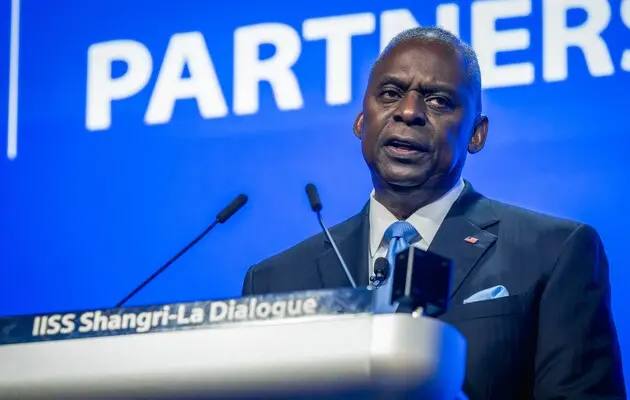US Secretary of Defense Holds China Accountable for Its Intimidation Tactics
During the recent Shangri-La Dialogue security forum in Singapore, US Secretary of Defense Lloyd Austin made headlines by vocally condemning China’s aggressive moves towards the Philippines. His statements weren’t just diplomatic rhetoric; they spotlighted a serious issue impacting regional security. Imagine this: China’s use of water cannons to block Philippine missions at the contentious Second Thomas Shoal is not simply a political maneuver; it’s a stark reminder of the ongoing tensions in the South China Sea, a body of water critical for international trade. Approximately one-third of global maritime trade transits through this region, making stability here paramount.
A Firm Commitment to the Defense Treaty
“Our commitment to our defense treaty is ironclad. No questions, no exceptions,” Austin asserted, illustrating the unwavering dedication of the United States to its allies. This statement echoes the sentiments shared by many defense analysts who view such treaties as crucial in maintaining a balance of power. According to a Pew Research Center survey, over 70% of Filipinos support a strong alliance with the United States, highlighting the importance Filipinos place on safety and security in the face of external threats.
Forging Stronger Alliances in the Indo-Pacific
In his address, Austin unveiled various initiatives designed to bolster partnerships in the Indo-Pacific region. This includes heightened cooperation with nations like Japan, Australia, the Philippines, and South Korea. To put this in perspective, military collaboration between these countries has notably increased over the years, with joint exercises becoming more frequent and sophisticated. For instance:
- Between 2018 and 2023, joint military drills in the Indo-Pacific area have increased by over 40%.
- The number of trilateral security dialogues has doubled, emphasizing a shared commitment to countering aggression.
- In 2023 alone, multiple exercises involving air and naval forces showcased enhanced interoperability among these allies.
Such cooperative measures are vital—not only do they send a clear message to potential aggressors, but they also build trust and capability among allies. As a real-world example, during a recent joint naval exercise, Australian forces demonstrated advanced communication systems in challenging conditions, proving the efficacy of these collaborations.
In conclusion, Austin’s firm stance against China’s intimidation tactics and his commitment to strengthening alliances in the Indo-Pacific is more than mere political posturing; it reflects a strategic necessity to ensure peace in a region critical to global interests. As situations evolve, it’s essential for nations to remain vigilant, united, and proactive in facing challenges head-on. The world is watching, and the time for action is now.






